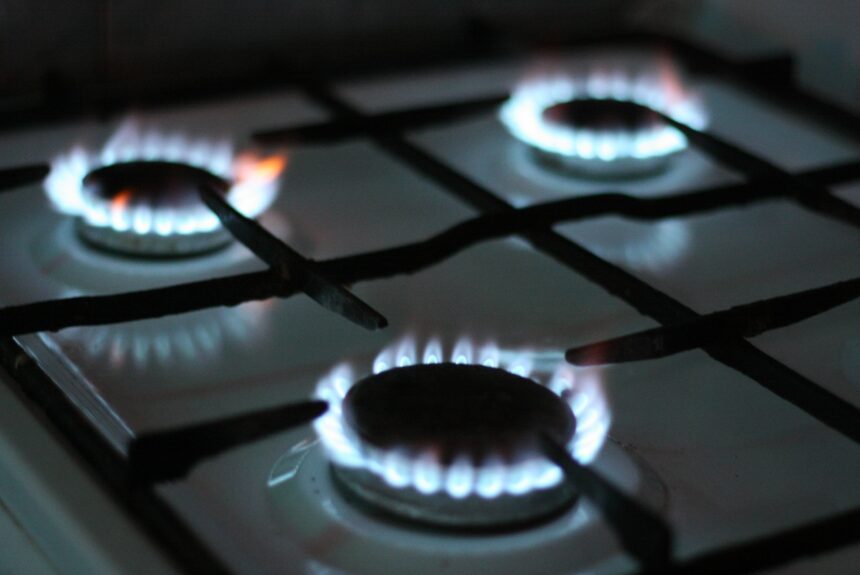Talk of banning gas stoves recently swept the nation after Richard Trumka Jr. of the Consumer Product Safety Commission (CSPC), which regulates dangerous household items, floated the idea. Thankfully, this isn’t going to happen any time soon, as a ban was ruled out by CSPC Chair Alexander Hoehn-Saric. But Trumka’s comment which sparked the firestorm. “Products that can’t be made safe can be banned” ought to cause lingering concern and warrant further debate. As our John Hart made clear in his discussion with MIT’s Kerry Emanuel on nuclear energy, the best way to make something unsafe can be misguided government attempts to make it safe.
>>>READ: America Needs Affordable, Diversified, Reliable Energy
The facts of the gas stove debate illustrate the folly of rushing to ban something that can’t be made 100 percent safe. Trumka signaled his support for a ban after a new study in the International Journal of Environmental Research and Public Health found a link between gas stoves and childhood asthma. While many news outlets and the twittersphere ran with the connection between gas stoves and asthma, the data is not all that clear. Further, while environmental health and safety are important, consumers, not bureaucrats, should determine what stoves they can and cannot use.
First, it’s important to put the link between asthma and gas stoves into context. The reality is that the media narrative is overestimating the link between childhood asthma and gas stove use. A 2013 report from the International Study of Asthma and Allergies in Childhood (ISAAC), considered by industry experts as the most comprehensive study on the topic to date, found “no evidence of an association between the use of gas as a cooking fuel and either asthma symptoms or asthma diagnosis.”
Additionally, one of the authors of the International Journal of Environmental Research and Public Health analysis told reporters that the study “does not assume or estimate a causal relationship between childhood asthma and natural gas stoves.” It “only reports on a population-level reflection of the relative risk given what we know about exposure to the risk factor,” according to Breanne Deppisch of The Washington Examiner.
While not enacted at the federal level, several localities and cities have passed bans on gas-burning stoves. In 2019, Berkeley, California became the first city to ban natural gas hookups in new construction. Since then, more than 70 states and localities have followed in Berekely’s steps and imposed similar bans or restrictions.
>>>READ: Bad Climate Policies are a Clear and Present Danger
These bans have had a demonstrably negative effect on housing prices. An independent analysis from the Pacific Northwest National Lab found that natural gas bans for new buildings in Washington state will add $6,000 to building costs. At a time when the price to buy a house or rent are historically high and inflation continues to reel, policymakers and regulators should be looking for ways to reduce costs for consumers. Furthermore, gas-powered appliances often last longer than their electric counterparts and save money in the long run through lower utility bills.
Importantly these bans do little to reduce emissions and therefore have negligible climate impacts. As Todd Myers of the Washington Policy Center points out:
In Washington state, where electricity rates are some of the lowest in the country, switching to electric heating costs about $80-$100 per metric ton of carbon dioxide. That is far more than other available carbon dioxide-reduction strategies that cost about $10 per metric ton, and even more than the Biden administration’s “social cost of carbon.”
Restaurants would also be negatively impacted by a ban on gas stoves. As Gianna Melillo of The Hill reports: “76 percent of U.S. restaurants use natural gas, while 94 percent of owners who use gas in their establishment say any ban would negatively impact their business.” These gas stove bans would no doubt hurt small and local restaurants the most, as they would be less likely to afford the upfront costs associated with switching to electric ranges.
Reducing CO2 emissions is a necessary goal, but it is one that should be done in a cost-effective manner. Gas stove bans are burdensome to consumers and businesses alike for no meaningful climate benefit and for a dubious connection to asthma. While electric stoves and induction stoves certainly have their merits, individuals, not federal regulators, should decide what appliance they want to use.
The views and opinions expressed are those of the author’s and do not necessarily reflect the official policy or position of C3.
